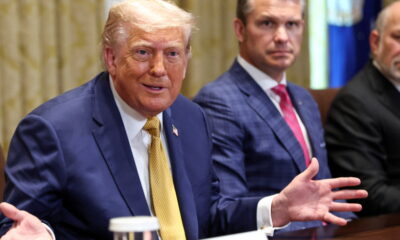Kony 2012 And The Hunger Games: Be Mindful Of What We Teach Our Children
Over dinner recently, I learned of my niece’s concern about her high school administrators removing the Kony 2012 posters that had been plastered all over the school. Kony 2012, a global campaign and viral video released by the nonprofit Invisible Children earlier this month, had fired her up and inspired her. My sister was thrilled to see her daughter so taken with a cause and so committed to having impact.
I suggested to my sister that perhaps the posters needed to come down so that teachers, students and families could take more time to learn about a very complicated and horrific situation. The recruitment of children into armed conflict is horrible and is taking place around the world. But at the end of the day, watching a video is not necessarily going to change anything. And learning solely through flashy, viral YouTube videos could be damaging.
A few nights later, I went to see what is now the highest-grossing American film of all time, The Hunger Games. This film tells the story of a post-apocalyptic world where children from different wards fight to the death in an annual televised event.
So what has this month taught our children? What are they learning about the African continent? What are they learning about killing, violence and children who are coerced to commit both?
In 2002, I co-wrote an illustrated book, Africa Is Not A Country, which chronicles 25 stories of children and their families in their daily lives around the African continent. I was motivated to write the book after more than a decade of speaking engagements and organizing workshops in classrooms around the United States. The questions, comments and attitudes about Africa I heard from our classrooms were troubling: “Do Africans wear clothes?†“Why are they all poor?†“What is the capital city of Africa?†“There are cities in Africa?â€
We must be mindful about the knowledge and information we share with our children about far-away places. The images and stories children see and hear form their base perceptions of the world around them. The pictures and words in books, movies, games and even on maps help or hinder children in building a foundation of appreciation and respect for humanity in all its diversity. Moreover, what we teach young children about the world can inspire their future curiosity.
Children should be introduced to activism, human rights and the violations of human rights that ignite activists. In fact, participatory activism involving children has been successful. Red Hand Day, an annual event that draws attention to child soldiers issues around the world, is a good example. But if we introduce complicated situations such as the LRA as “stopping the bad Africans,†we set our children up to assume they can save Africa—or worse—that they should be the saviors of Africa.
Countries in Africa, like countries around the world, have human rights problems. Our children should learn about them. But it sells short our children’s intelligence and the good human rights work going on around the world to teach it in flashy, dubious viral movies. Why not teach what people in Uganda think about Kony 2012? Our children, and the world about which we’re trying to teach them, deserve better.
A version of his article was published originally at the Southern Poverty Law Center’s Teaching Tolerance website and appears here courtesy of the author.
 A children’s book writer and career educator, Margy Burns Knight has received the National Education Association’s Author-Illustrator Human & Civil Rights Award for the body of her work with Anne Sibley O’Brien (TALKING WALLS and other books) and the 2001 Children’s Africana Book Award for AFRICA IS NOT A COUNTRY. In addition to her work as an author, presenting in hundreds of classrooms around the world, Margy is also a teacher and community volunteer.
A children’s book writer and career educator, Margy Burns Knight has received the National Education Association’s Author-Illustrator Human & Civil Rights Award for the body of her work with Anne Sibley O’Brien (TALKING WALLS and other books) and the 2001 Children’s Africana Book Award for AFRICA IS NOT A COUNTRY. In addition to her work as an author, presenting in hundreds of classrooms around the world, Margy is also a teacher and community volunteer.

Enjoy this piece?
… then let us make a small request. The New Civil Rights Movement depends on readers like you to meet our ongoing expenses and continue producing quality progressive journalism. Three Silicon Valley giants consume 70 percent of all online advertising dollars, so we need your help to continue doing what we do.
NCRM is independent. You won’t find mainstream media bias here. From unflinching coverage of religious extremism, to spotlighting efforts to roll back our rights, NCRM continues to speak truth to power. America needs independent voices like NCRM to be sure no one is forgotten.
Every reader contribution, whatever the amount, makes a tremendous difference. Help ensure NCRM remains independent long into the future. Support progressive journalism with a one-time contribution to NCRM, or click here to become a subscriber. Thank you. Click here to donate by check.
 |






















